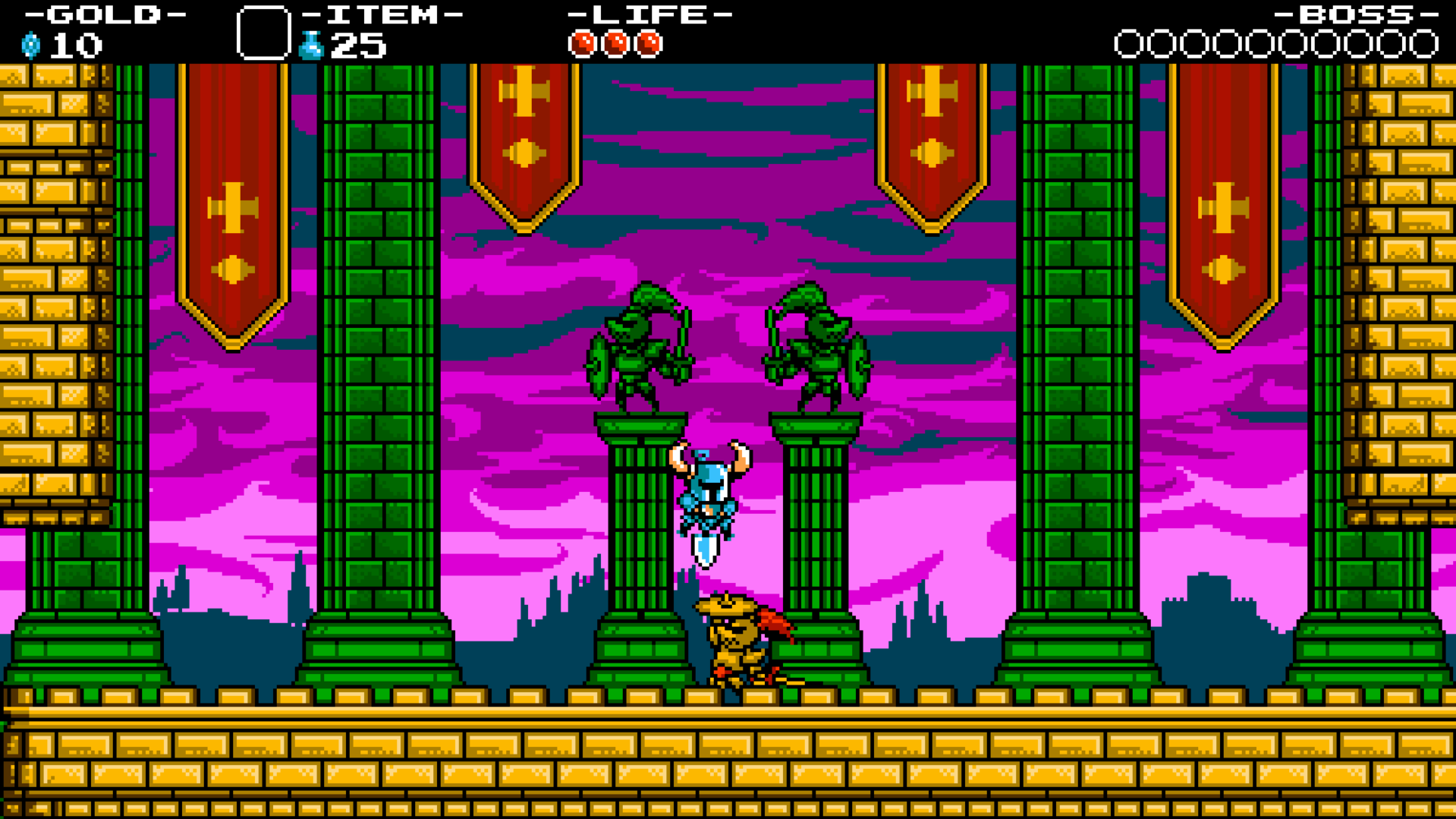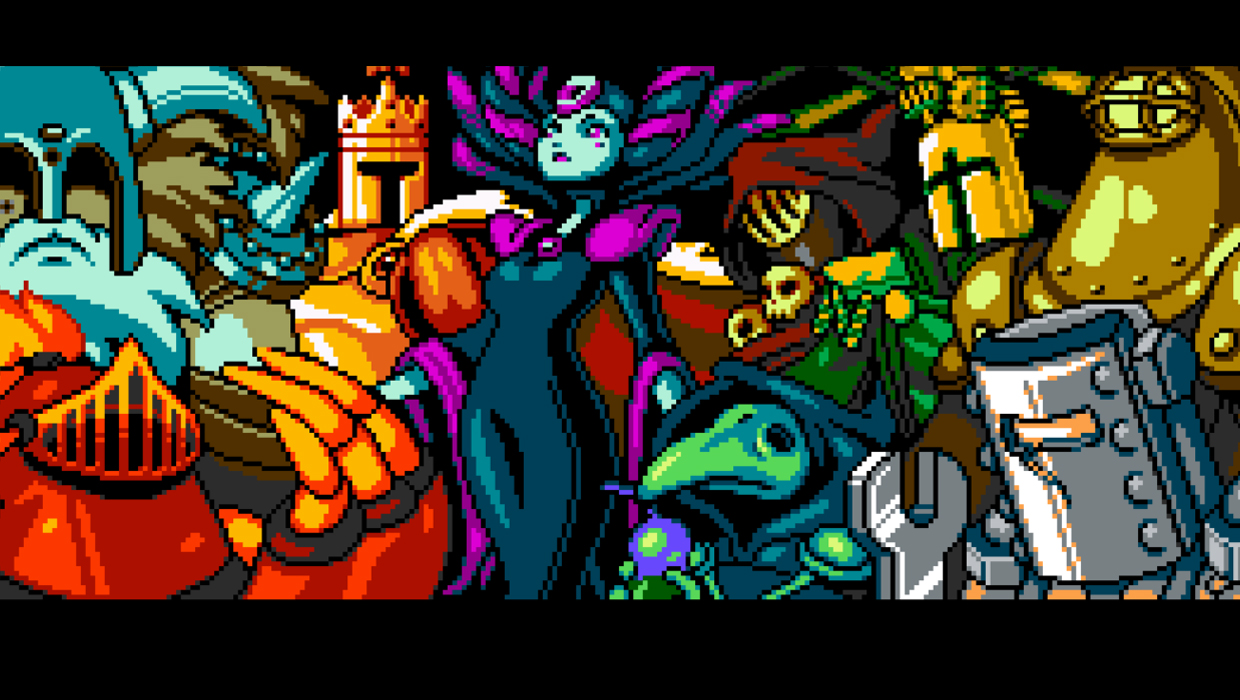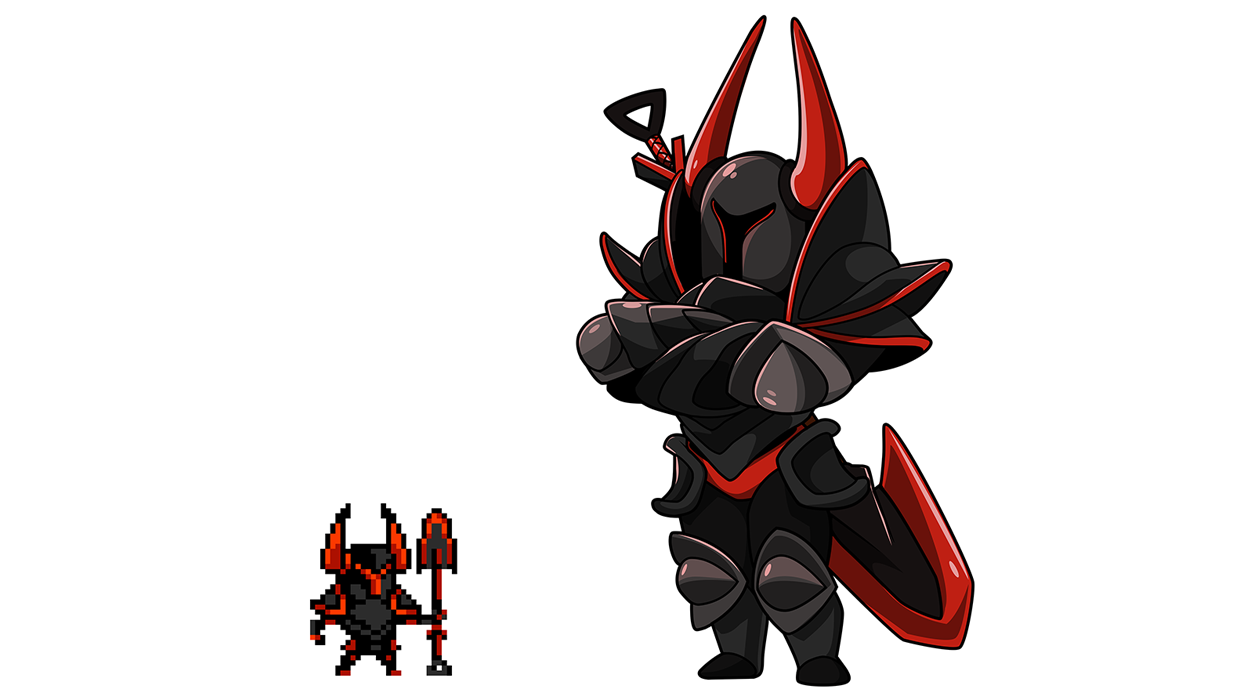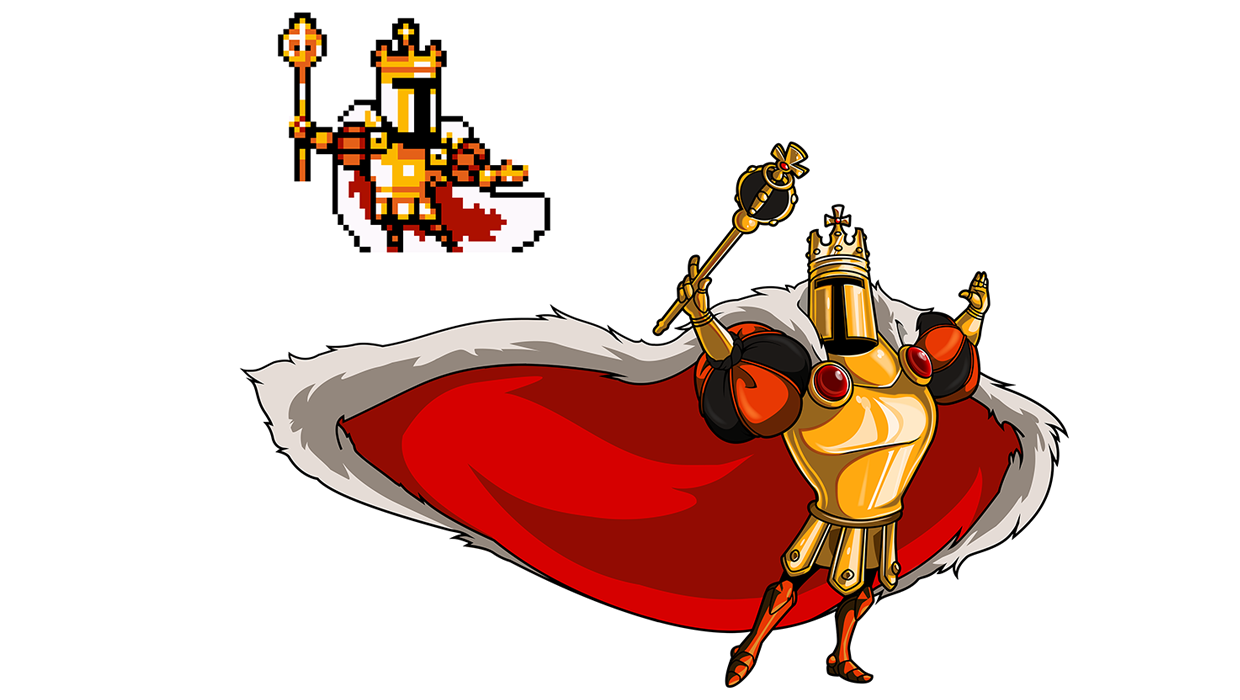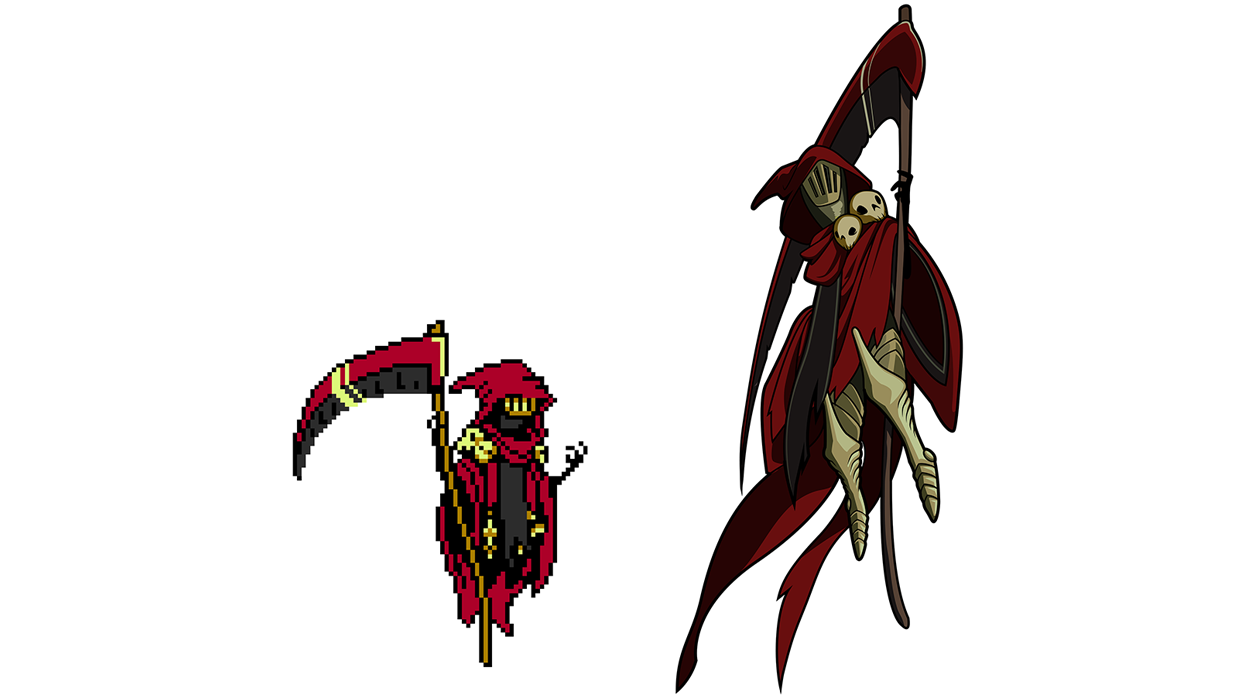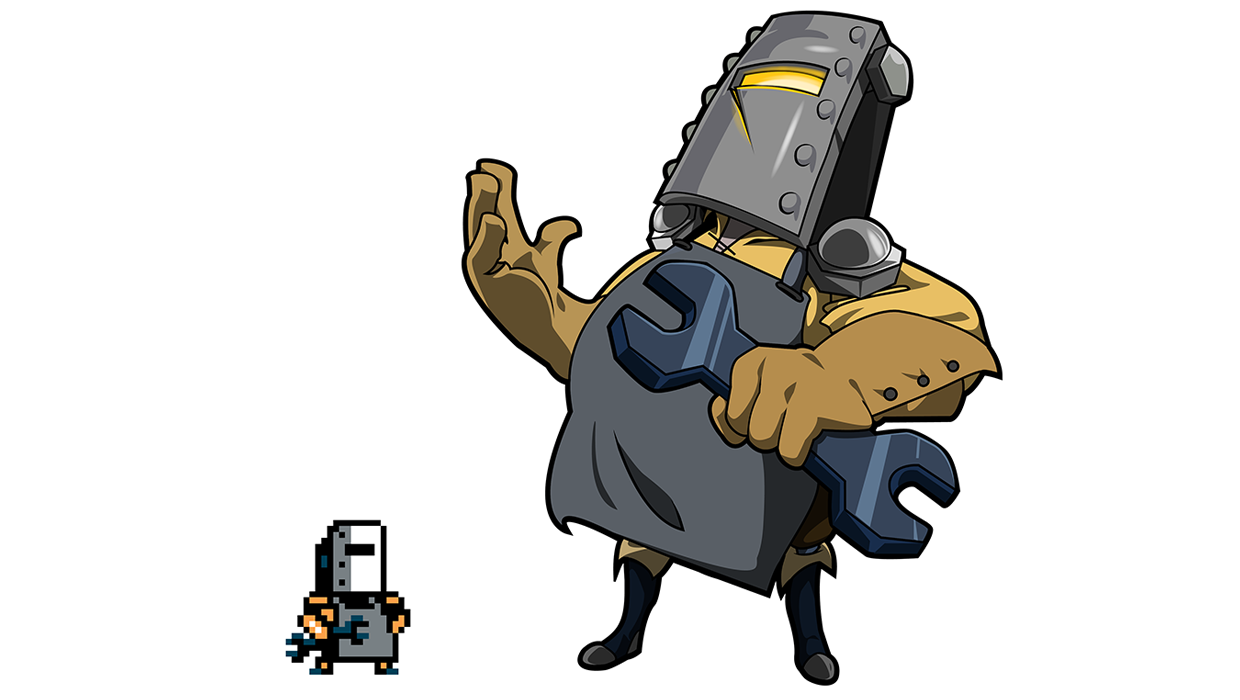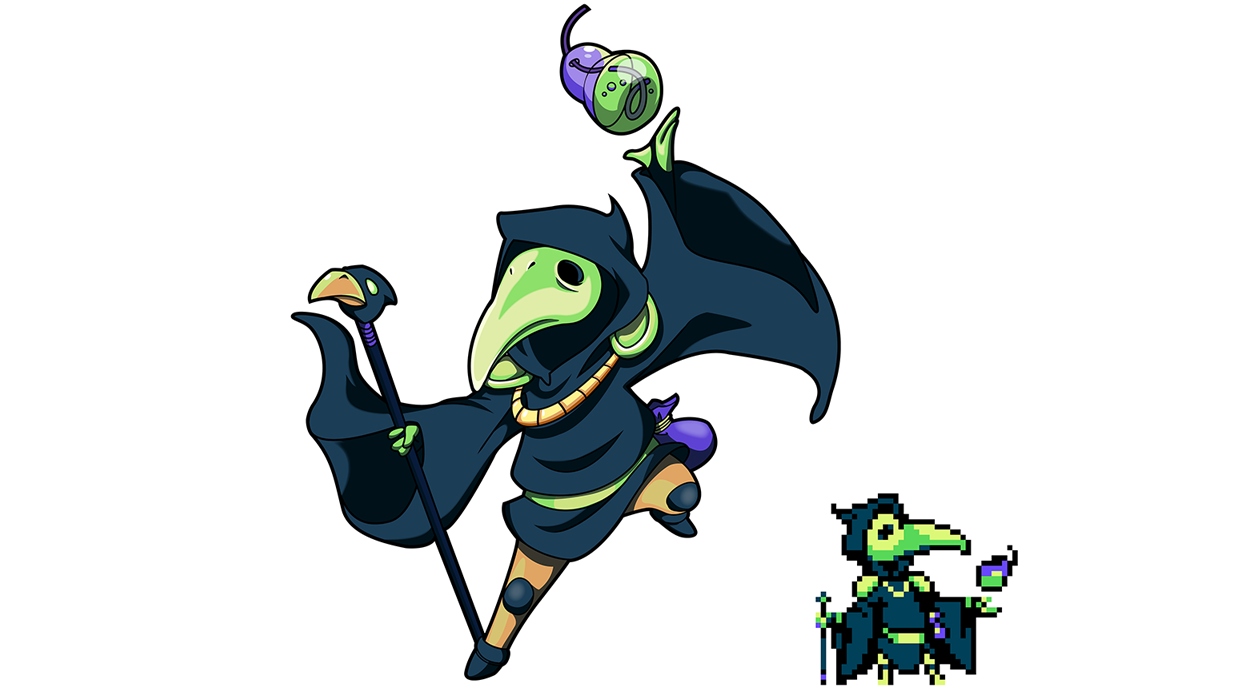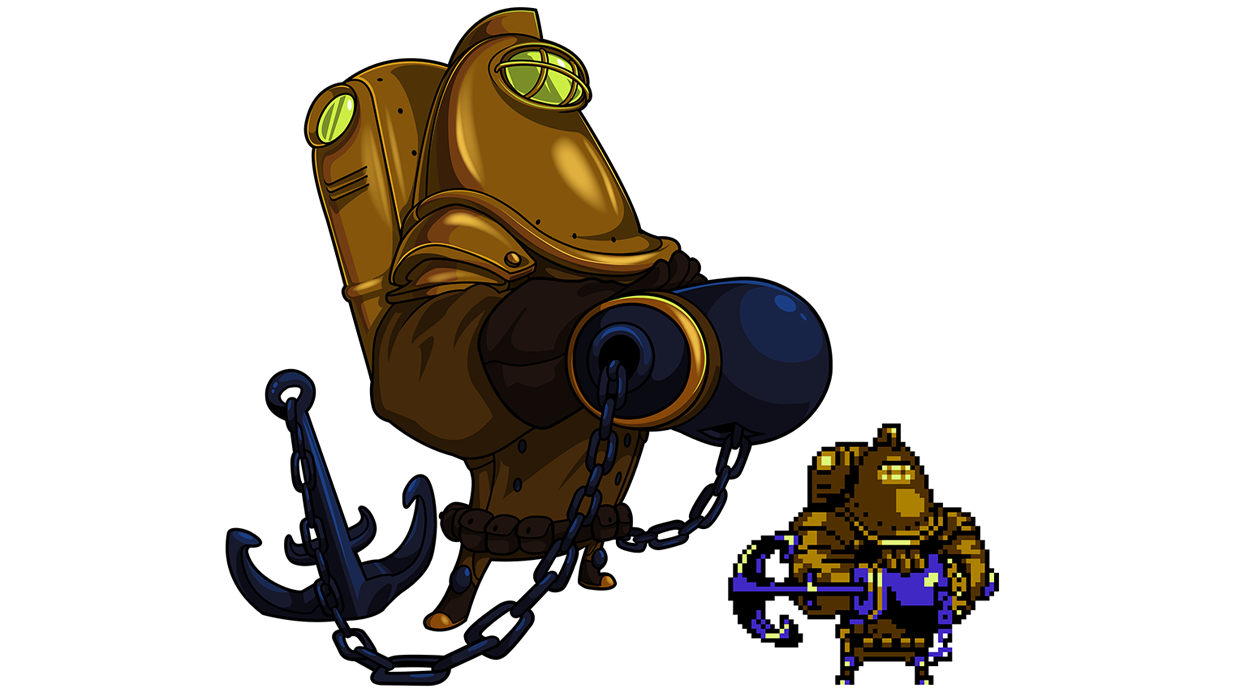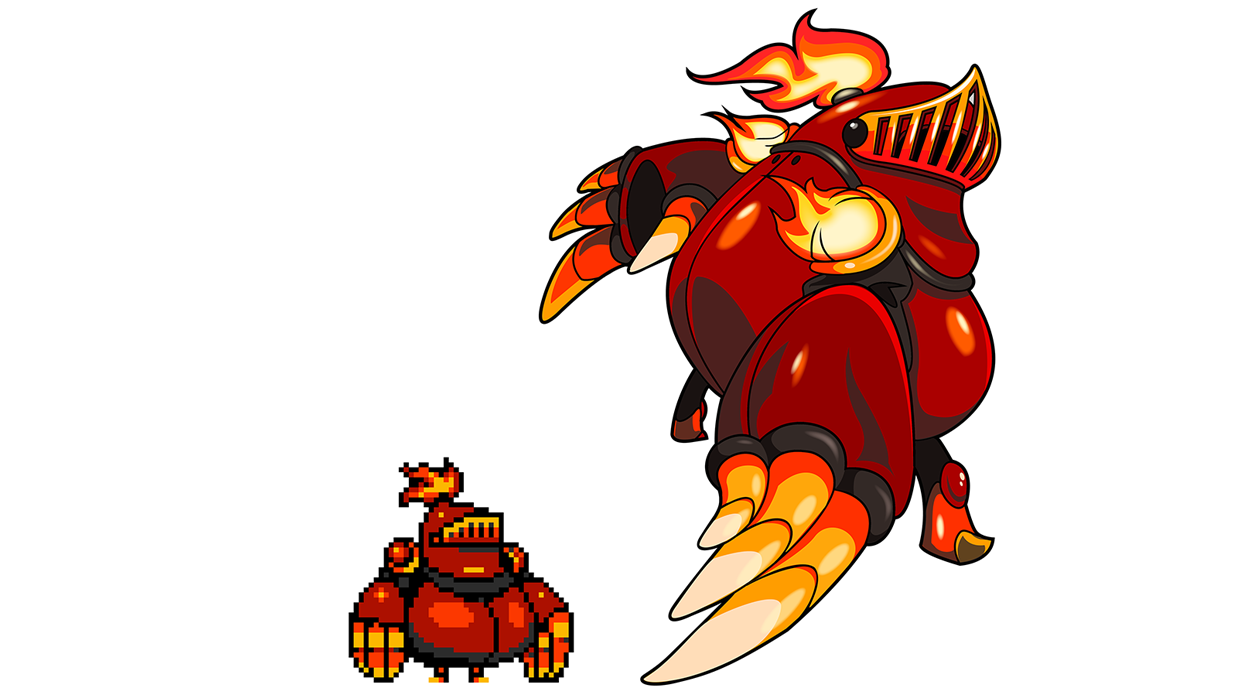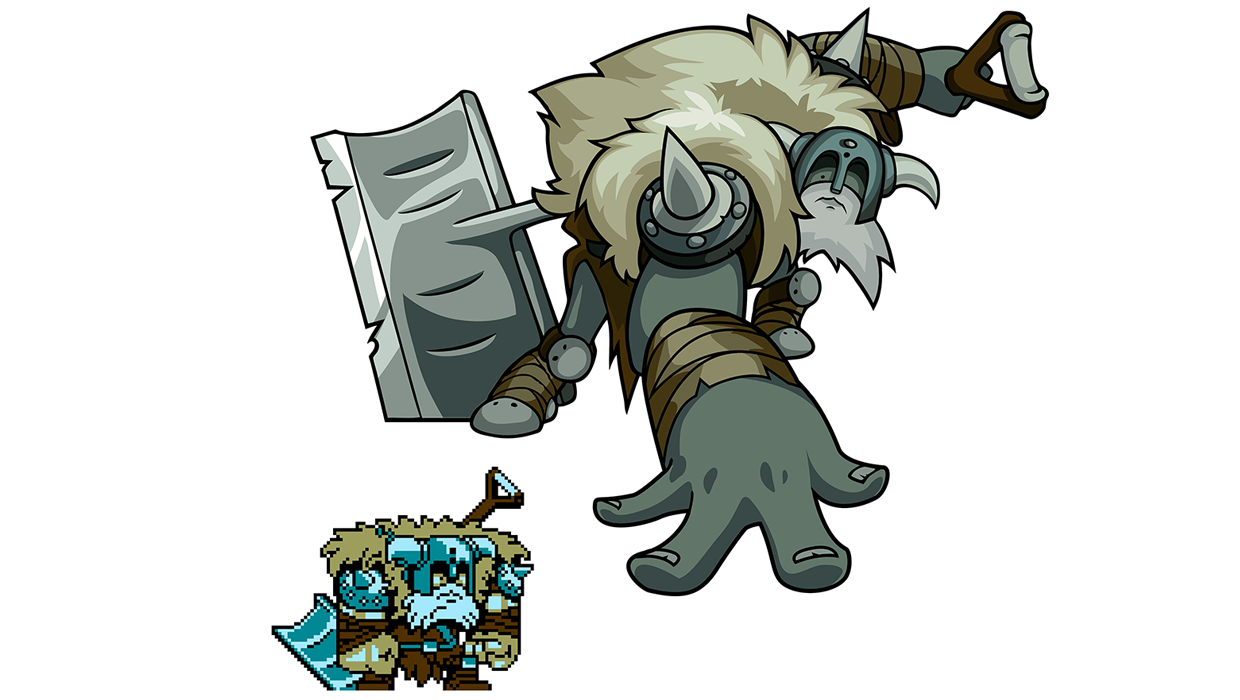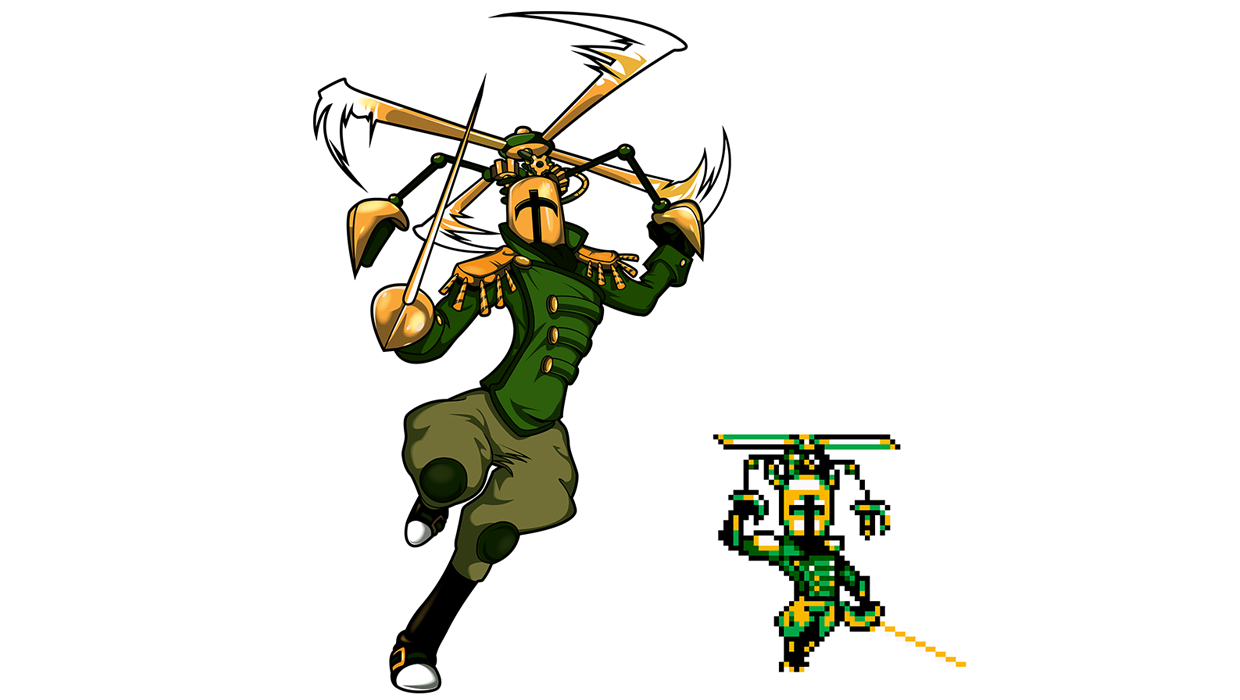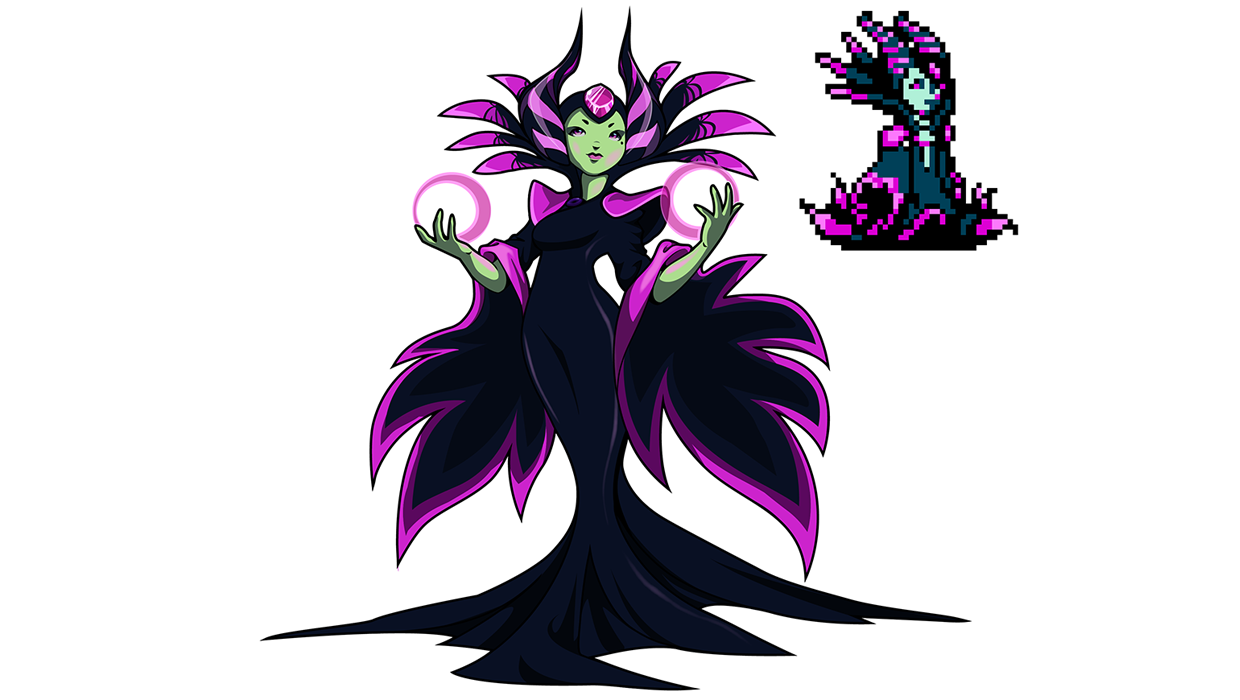GamesRadar+ Verdict
Pros
- +
Nostalgic art style
- +
Unique stages and bosses
- +
Lots of extras on the world map
Cons
- -
Occasionally feeling overpowered
Imitation is the sincerest form of flattery, and the team at Yacht Club Games has crafted a loving tribute to the classic NES Mega Man titles with Shovel Knight. It’s a journey through totally unique stages topped off by one-of-a-kind bosses, with fun power-ups and platforming along the way. And it’s a journey through retro nostalgia, reminding us of a time when games and stories were simple yet fun.
The tale begins with Shovel Knight returning from a time of isolation in the farmlands. He once journeyed with a female companion named Shield Knight until disaster at a fortress known as the Tower of Fate caused a cursed amulet to make her disappear. Not vanish like a magic trick, mind you--what actually happened is never outright explained, but it does do a good job of setting the stage for the game’s simple retro experience. The event--whatever it was--caused Shovel Knight to retreat from the spotlight… until the evil Enchantress and her Order of No Quarter took over the land. Now he must stop that team of villains. It’s not a high-concept premise, but it’s all Shovel Knight needs to plop you right down into the action.
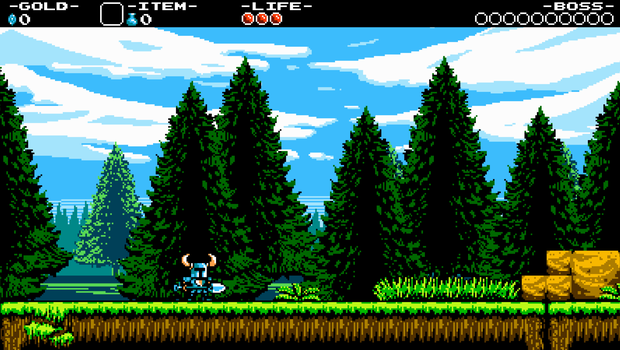
“Plop” is the right word there, as Shovel Knight lacks any real tutorial. This is a good thing--you get right into the action in the game’s first level with no handholding. Shovel Knight can jump and attack with his shovel, but he can also use it like Scrooge McDuck’s cane in Duck Tales (NES), bouncing over enemy heads and obstacles. His various manoeuvres are simple to grasp, but tough to master, and that constantly gives you an exciting feeling that there’s more to discover. And there is...
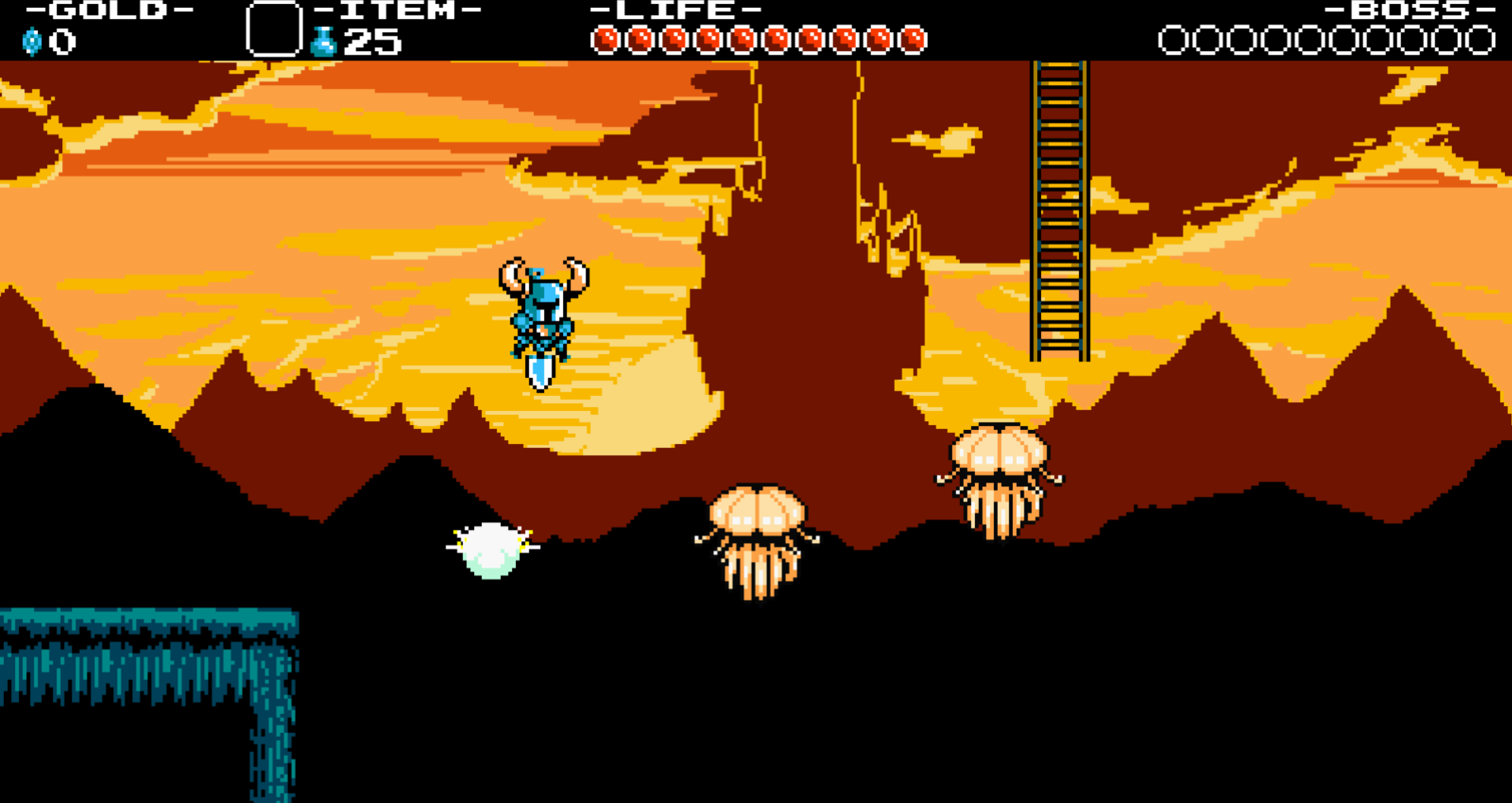
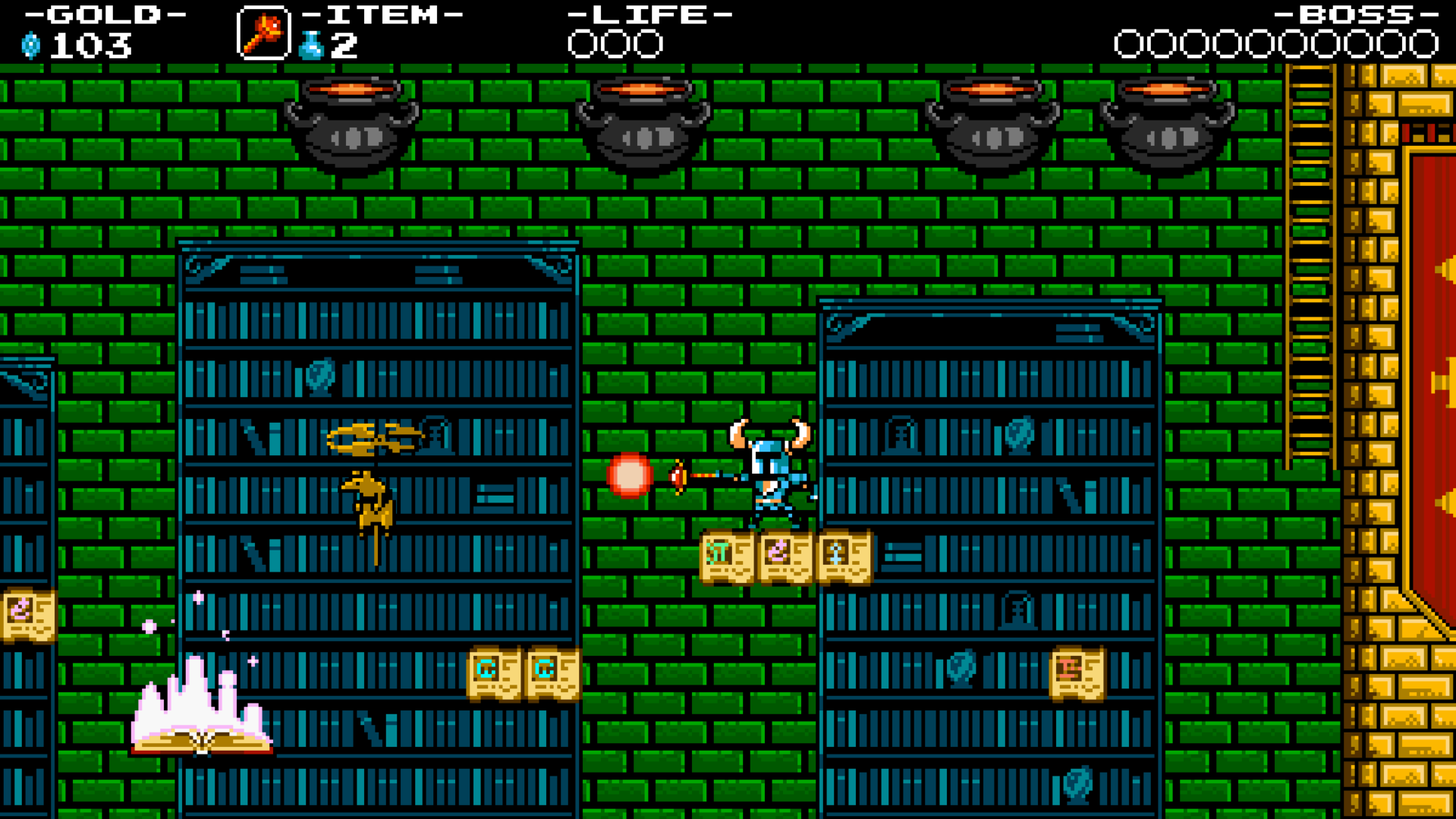
When you’re not exploring the main levels, there are some fun diversions on the world map. Optional bosses like The Baz (copy-and-pasted from Divekick) occasionally pop up, and these are some of the best fights of the game. There are also optional challenge levels, which actually require some of those overpowered items to complete--but these are more difficult than the standard stages, and reward you with lots of treasure. For those who want a greater challenge, they are a great option.
Every level is completely different from the last, with new traps like falling chandeliers and spurts of lava being regularly introduced. It’s a fun way to drive you to play “just one more level,” to see--and conquer--the new features of each one. They’re each themed on a member of the Order of No Quarter, a board of knights with varying elemental abilities (see the gallery below for a breakdown). One such stage, modeled after Specter Knight, is a dark graveyard, where you can only see the platforms below you when lightning flashes, lighting up the area. It’s a thrilling stage; a highlight amongst a slew of genuinely novel levels.
This variety carries over into the end-of-level bosses themselves. Each stage is capped with a battle against one of the Order’s knights, whose personality matches his home level. Just as you’re driven to see what each level offers, it’s a thrill seeing a new knight in battle.
Treasure Knight, for example, lives in a flooded submarine filled with plundered gold, and he attacks by zipping around the arena with a grappling hook/spear gun device. Plague Knight lives in a castle-turned-potion-shop, and he floods the screen with vials of poison and explosives. These are pulse-pounding battles littered with flying projectiles and flailing blades.
While those fights may sound difficult--especially for gamers who have fallen away from (or never experienced) retro difficulty--there is a balancing force within the game. Shovel Knight can purchase gear, like a Phase Bracelet that lets him ghost through enemies and attacks, and a Fire Rod that shoots ranged fireballs. Items like these do make combat and exploration easier, but they also completely nerf the boss fights. Once you purchase enough gear, the knights become pushovers--I spammed one of the final fights with a ricocheting magic and won with almost no effort, and the fact that treasure is plentiful means purchasing these abilities is too easy. I felt godlike a few times, and that left some fights that should have been intense feeling hollow. The upside is that these overpowered items give you a head start in Shovel Knight’s New Game Plus. Which is... tough.
That said, my first journey through Shovel Knight was still a blast. I loved seeing what each new level and boss were going to throw at me. I never felt like I was seeing the same screen twice, and even when I was overpowered, I was still having fun. Most will blow through the game in 6 hours, but many will feel the urge to replay on higher difficulties. I did. Why? Because I really “dig” Shovel Knight... Yeah? YEAH! I had to make that joke at least once.
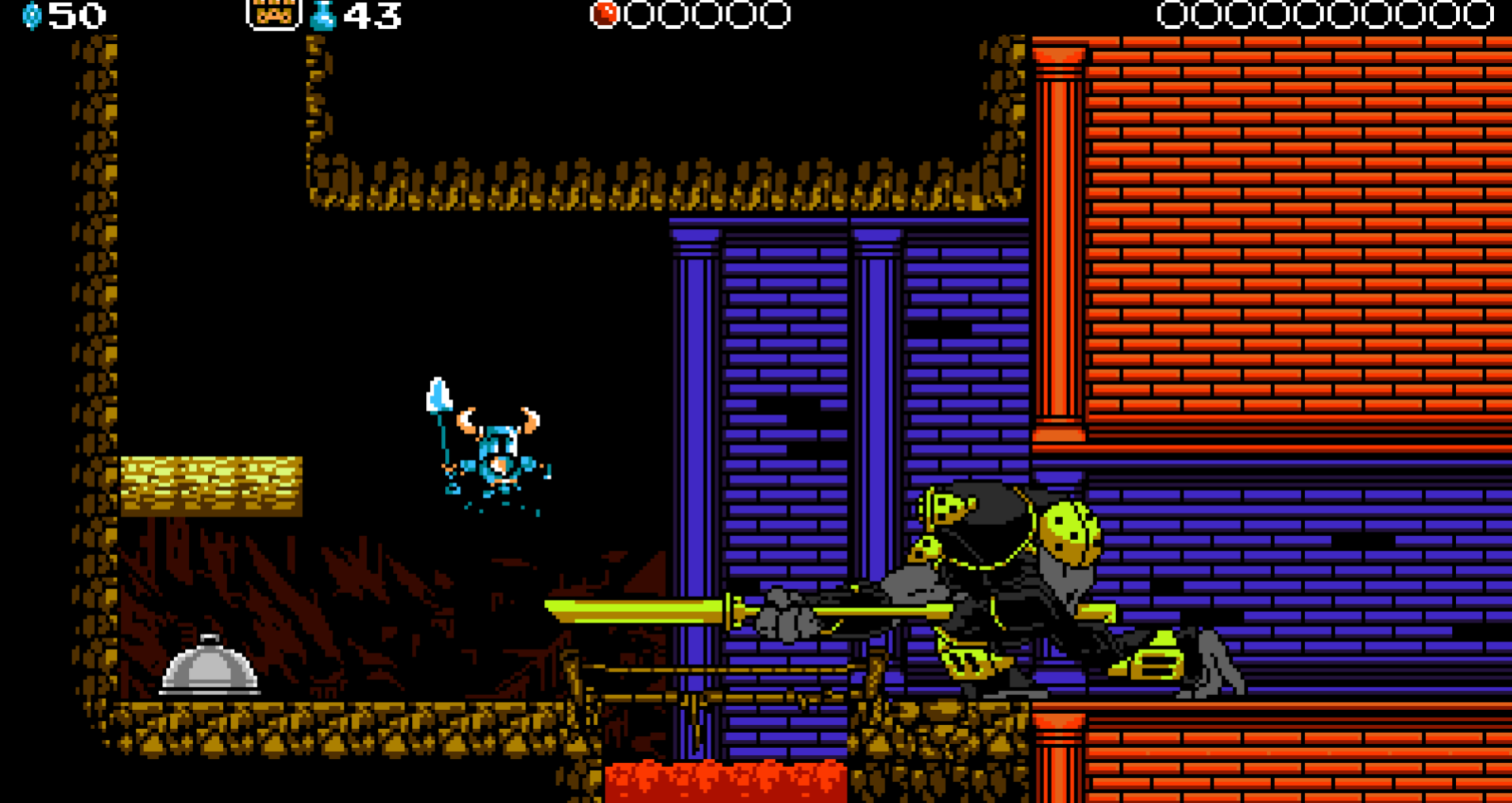
This game was reviewed on PC.
More info
| Genre | Platformer |
| Description | As a knight armed with a trusty shovel, you smack, clobber, and dig your way through the land. |
| Platform | "Wii U","3DS","PC" |
| US censor rating | "Everyone","Everyone","Everyone" |
| UK censor rating | "","","" |
| Release date | 1 January 1970 (US), 1 January 1970 (UK) |
Tony lives in Maryland, where he writes about those good old-fashioned video games for GamesRadar+. His words have also appeared on GameSpot and G4, but he currently works for Framework Video, and runs Dungeons and Dragons streams.
